Many opinions say that, in addition to weak internal strength, the supporting industry is currently facing difficulties due to barriers of lack of connection between businesses in the industry.
Mr. Chu Viet Cuong - Director of the Center for Industrial Development Support, Department of Industry ( Ministry of Industry and Trade ) had an interview with reporters of Industry and Trade Newspaper about this issue.
Over the past time, what solutions has the Department of Industry implemented to support supporting industry enterprises in improving production and business capacity and participating in the global production chain?
 |
| Mr. Chu Viet Cuong - Director of Industrial Development Support Center, Department of Industry (Ministry of Industry and Trade) |
With the function of supporting the Department of Industry, Ministry of Industry and Trade in state management of the industry, performing technical service activities to support industrial enterprises and implementing the supporting industry development program according to Decree 111/2015/ND-CP dated November 3, 2015 of the Government on supporting industry development.
Over the years, the Industrial Development Support Center has implemented many solutions to enhance the capacity of supporting industry enterprises. Specifically:
Firstly , we always support training to improve the skills and abilities of technicians of enterprises. From 2019 to now, the Center has cooperated with Samsung Vietnam Group to train nearly 200 engineers on molds; cooperated with other international organizations and units such as KITECH (Korea), CGS (Japan) to train CAD/CAM/CNC design, processing and measurement technology for more than 150 enterprises, with more than 300 students participating.
Second , direct technical support for industrial manufacturing enterprises on machinery and equipment as well as processing, measuring equipment, measuring services and testing of new industrial products.
Third , the Center continuously supports innovation by providing consulting services to 36 businesses in the Northern region to deploy smart factory solutions.
Fourth , regularly organize business connection consulting training courses.
In addition, we also provide consulting services for businesses to improve production. Up to now, we have consulted for nearly 500 businesses operating in the supporting industry such as: mechanics, automobiles, electronics, textiles - footwear and high technology.
Fifth , the Center supported nearly 700 enterprises to participate in the annual International Exhibition on Processing, Manufacturing and Supporting Industries (VIMEXPO) assigned by the Ministry of Industry and Trade to the Department of Industry to chair and direct the organization.
In addition, the Center annually supports 30-40 businesses to participate in exhibitions in Japan and Korea. In 2024 alone, it continued to support 12 businesses to participate in the M-Tex Osaka Exhibition in the Japanese market.
In particular, the Center regularly maintains and updates the information portal and database system on manufacturing and supporting industry enterprises. Up to now, there is information on more than 7,000 supporting industry enterprises in 5 industries: mechanics, automobiles, electronics, textiles - footwear and high technology.
Many opinions say that one of the challenges currently is the lack of connection between businesses, which is becoming a barrier to the development of the supporting industry. What is your assessment of this issue?
The lack of linkages between supporting industry enterprises is one of the major obstacles to the development of the industry and limits the ability to participate in the global value chain. This lack of linkages can reduce production efficiency, limit the ability to cooperate and share resources and technology.
Specifically, supporting industry enterprises are often small and medium-sized enterprises, lacking financial capacity, technology and high-quality human resources. Accordingly, many supporting industry enterprises currently do not have enough potential to invest in research and development (R&D) or technological innovation, reducing the opportunity to access international standards.
The lack of linkage makes it difficult for them to share resources with each other, thereby limiting their ability to compete and expand production scale, leading to inconsistencies in product quality standards, making it difficult for businesses to meet the requirements of large manufacturers in the global supply chain. This creates a loss of trust from international partners, because it is difficult for them to ensure consistency in product quality when working with many small suppliers.
In addition, due to the lack of close linkages, supporting industry enterprises find it difficult to create a strong domestic supply chain, leading to heavy dependence on imported raw materials and components, reducing initiative and increasing production costs.
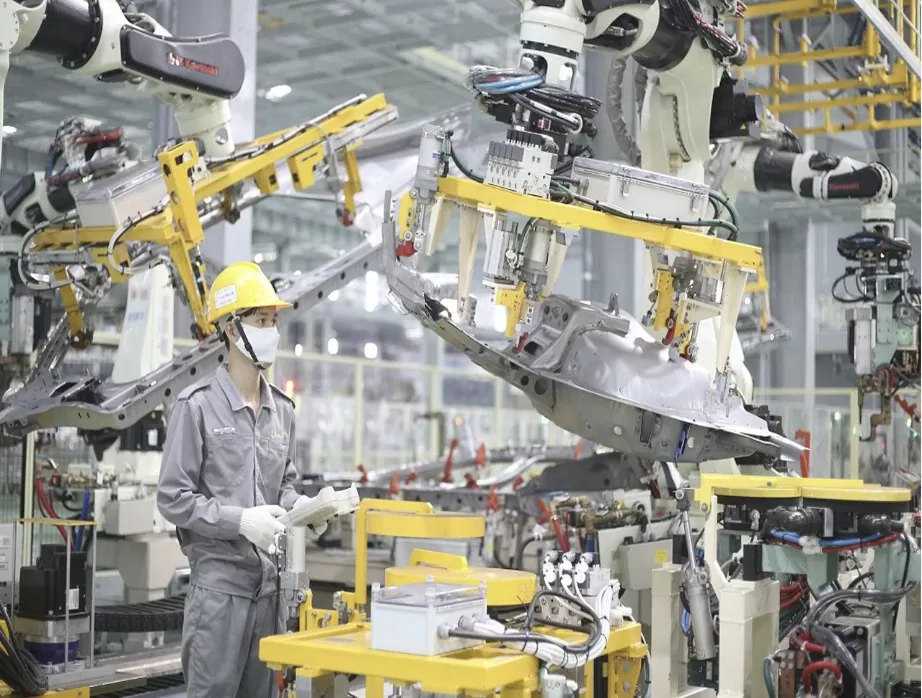 |
| Automobile assembly line at the factory of Truong Hai Auto Corporation ( Thaco ) in Chu Lai Open Economic Zone (Nui Thanh district, Quang Nam province). Photo: MOIT |
At the same time, the lack of coordination between businesses reduces the ability to optimize production processes, while losing opportunities for cooperation in new product development and innovation.
Therefore, in recent years, some local authorities have been developing industry clusters - where businesses can share resources, technology and knowledge.
The linkage of industrial parks and clusters has brought about outstanding efficiency in production due to the concentration of many enterprises producing in the same field, thus creating a strong competitive driving force. But above all, the linkage of industrial parks and clusters also allows enterprises to have many opportunities to meet, learn, establish cooperative relationships, and specialize in production, especially in the fields of transactions, order processing, transportation, supply, waste treatment, etc.
In the last months of 2024, the international and domestic context has favorable factors, but production and trade development faces many difficulties and challenges. Industrial enterprises, especially export enterprises, continue to face difficulties in expanding and diversifying markets due to high input material costs and compliance costs. What do you think about this issue?
In my opinion, the high cost of input materials includes many causes such as dependence on foreign supplies. Specifically, many manufacturing enterprises have to import raw materials and components from abroad due to lack of domestic supply. Accordingly, this dependence increases costs due to fluctuations in raw material prices, especially in the context of global economic instability, epidemics and geopolitical crises.
In addition, transportation and logistics costs related to raw material imports have increased, especially during periods of rising fuel prices and disruptions to global supply chains. In addition, the objective cause is the increase in global raw material prices. Due to high demand from many major producing countries, prices of raw materials such as metals, chemicals, and agricultural products have increased, especially in China and developing markets.
In the coming time, production costs may continue to increase as businesses must invest in equipment, quality management systems and inspection activities to meet international requirements. This will lead to a sharp increase in product prices and make it difficult for industrial export enterprises to expand production scale or invest in new technology, leading to delays in penetrating new markets and diversifying products and will face the risk of being eliminated from the market due to not meeting strict requirements.
Accordingly, I recommend that the State should continue to provide financial support packages or tax incentives to help businesses reduce costs in complying with international standards. In addition, it is possible to establish domestic quality inspection centers that meet international standards to reduce costs and time for businesses when having to carry out inspections from abroad.
For businesses, it is necessary to invest more in research and development (R&D) to find and develop alternative domestic sources of raw materials, reduce dependence on imports, optimize the supply chain to reduce transportation costs and delivery times. In particular, it is necessary to apply advanced production technologies, such as lean manufacturing, to minimize material waste and improve production efficiency.
Source: https://congthuong.vn/thieu-lien-ket-rao-can-kim-ham-su-phat-trien-cua-nganh-cong-nghiep-ho-tro-355083.html



![[Photo] Prime Minister Pham Minh Chinh chairs meeting on science and technology development](https://vphoto.vietnam.vn/thumb/1200x675/vietnam/resource/IMAGE/2025/5/17/ae80dd74c384439789b12013c738a045)
![[Photo] More than 17,000 candidates participate in the 2025 SPT Competency Assessment Test of Hanoi National University of Education](https://vphoto.vietnam.vn/thumb/1200x675/vietnam/resource/IMAGE/2025/5/17/e538d9a1636c407cbb211b314e6303fd)
![[Photo] Readers line up to visit the photo exhibition and receive a special publication commemorating the 135th birthday of President Ho Chi Minh at Nhan Dan Newspaper](https://vphoto.vietnam.vn/thumb/1200x675/vietnam/resource/IMAGE/2025/5/17/85b3197fc6bd43e6a9ee4db15101005b)


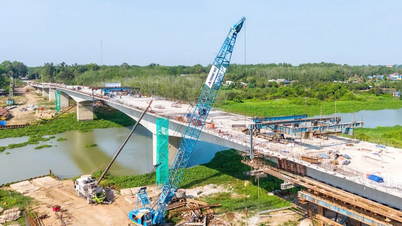


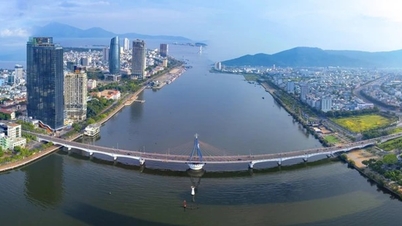
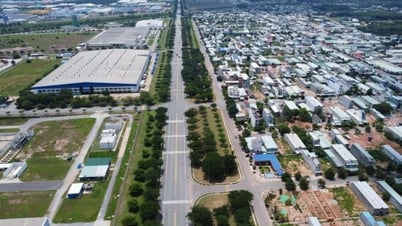

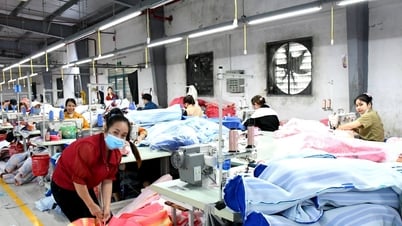








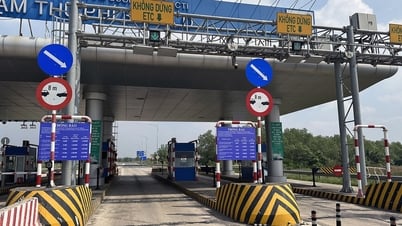









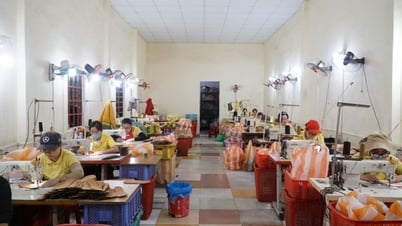

![[Photo] Nearly 3,000 students moved by stories about soldiers](https://vphoto.vietnam.vn/thumb/1200x675/vietnam/resource/IMAGE/2025/5/17/21da57c8241e42438b423eaa37215e0e)






















































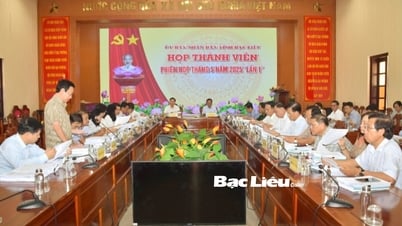


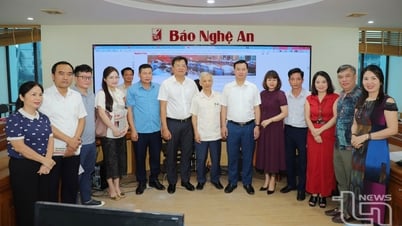


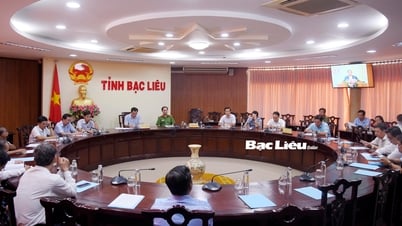











Comment (0)